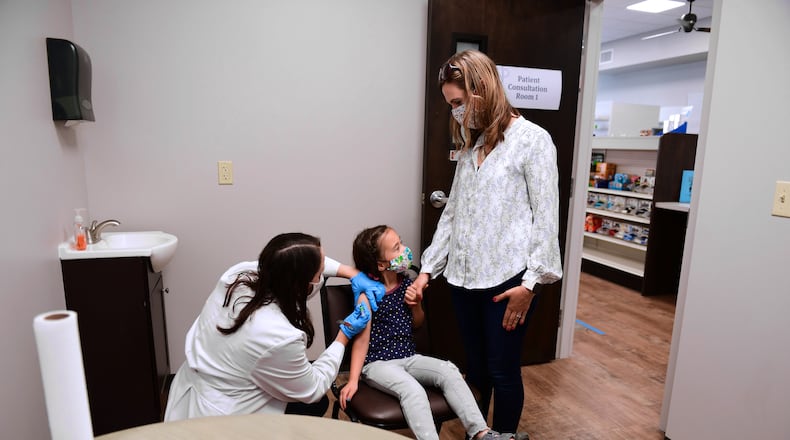“In the midst of the current pandemic with COVID-19, it is even more important to receive your flu vaccine this year,” Dr. Lisa Ziemnik, division chief of Dayton Children’s Kids Express and urgent care, said in a statement.
She said many of the symptoms of COVID-19 in children are similar to the flu, especially the early signs, like fever.
"Once fever hits, we don’t know if it is flu, COVID or another virus. Having the flu vaccine helps to decrease the likelihood that it is flu and helps us, as physicians, to best take care of each individual and overall keep more children healthy,” Ziemnik said.
To get your child’s flu vaccine, parents have several options. Dayton Children’s said the best option is to call your child’s pediatrician.
Children ages 3 and up can also go to Dayton Children’s pharmacy at either:
- the main campus pharmacy, at One Children’s Plaza, Dayton.
- or the south campus at 3333 West Tech Road, Springboro.
Parents can also book an appointment online at Dayton Children’s Kids Express childrensdayton.org/saveyourspot for locations in Springboro, West Chester or Mason, which are for ages 6 months to 21 years.
The hospital said anyone in the community is welcome to visit Dayton Children’s main or south campus pharmacy any time it is open to receive the flu vaccination.
The seasonal flu can not only lead to illness but can also lead to hospitalizations and deaths. Nationally, the total number of child flu deaths reported to CDC for last season was 188, though the agency estimates the actual number is likely higher.
For the 2019-2020 season, only 21% of children eligible for vaccination were fully vaccinated against flu, according to the CDC.
CDC recommends everyone 6 months and older get an annual flu vaccine, especially children who are younger than 5 years of age or children of any age who have a high risk medical condition, because they are more likely to develop serious flu complications that can lead to hospitalization and death.
Getting vaccinated has been shown to reduce flu illnesses, doctor’s visits, missed school days, and reduce the risk of flu-related hospitalization and death in children.
About the Author
